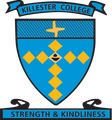Performing Arts

Import Dates Coming Up
Sunday 18th August
Essentially Ellington Festival at Xavier College, Kew - Stage Band 2.30pm-6.00pm
Monday 19th August
Monash Youth Music Festival at Huntingtower School, Mt Waverley Swing Sisters 2.00pm-6.00pm
Friday 23rd August
Brigidine Day - Concert Band, all choir girls for Liturgy
I was scrolling through the ABC FM website this week and came upon this article which captures, for me at least, why all of our girls should be exposed to a music education. It makes for interesting reading if you have five minutes.
A new study finds a high correlation between school students studying music and performing well at maths, science and English. But is the students' academic performance a cause or effect of studying music?
The study, published in the Journal of Educational Psychology, compared the results of all students who graduated high school between 2012 and 2015 in British Columbia. The correlation between academic performance and music study was evident even when the researchers controlled for socioeconomic background, ethnicity, gender, and their prior performance in mathematics and English, suggesting that improved academic performance is an effect of music study. The study's principal investigator from the University of British Columbia, Peter Gouzouasis, said that "The students who learned to play a musical instrument in elementary and continued playing in high school not only score significantly higher, but were about one academic year ahead of their non-music peers."
Students who studied at least one instrumental music course in the regular curriculum counted as students taking music. Qualifying music courses are courses that require previous instrumental music experience and include concert band, conservatory piano, orchestra, jazz band, concert choir and vocal jazz. The researchers found the predictive relationships between music education and academic achievement were more pronounced for those who took instrumental music rather than vocal music. The findings suggest skills learned in instrumental music transfer very broadly to the students' learning in school. "Learning to play a musical instrument and playing in an ensemble is very demanding," said the study's co-investigator Martin Guhn, an assistant professor in UBC's school of population and public health. "A student has to learn to read music notation, develop eye-hand-mind coordination, develop keen listening skills, develop team skills for playing in an ensemble and develop discipline to practice. All those learning experiences, and more, play a role in enhancing the learner's cognitive capacities, executive functions, motivation to learn in school, and self-efficacy."
The researchers hope that their findings are brought to the attention of students, parents, teachers and administrative decision-makers in education, as many school districts in British Columbia have emphasised numeracy and literacy at the cost of other areas of learning, particularly music. "Often, resources for music education — including the hiring of trained, specialised music educators, and band and stringed instruments — are cut or not available in elementary and secondary schools so that they could focus on math, science and English," said Gouzouasis.
